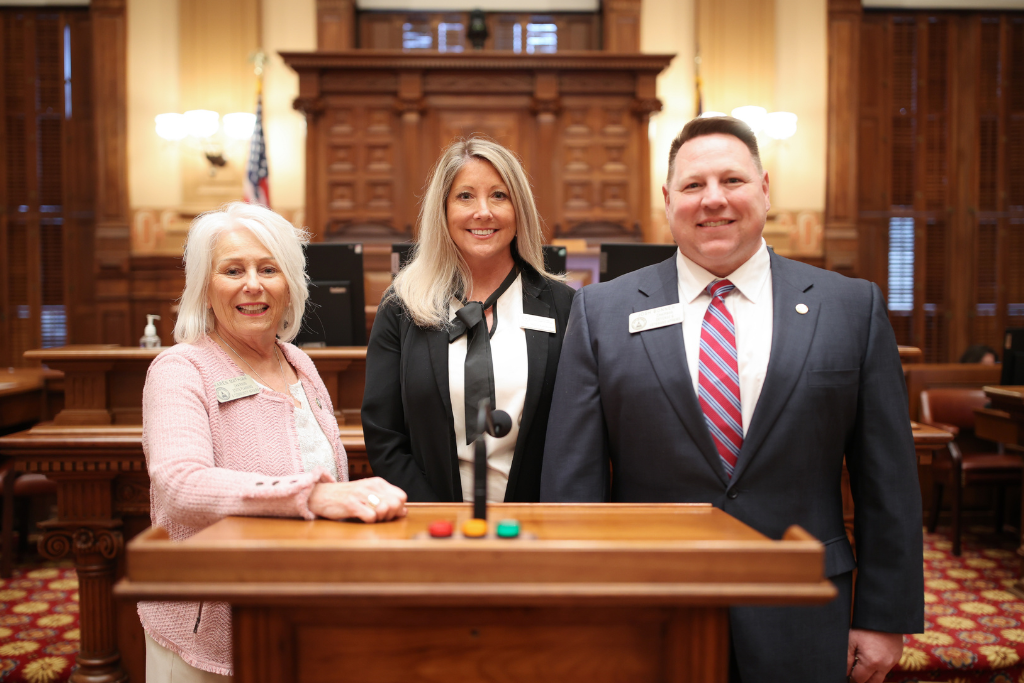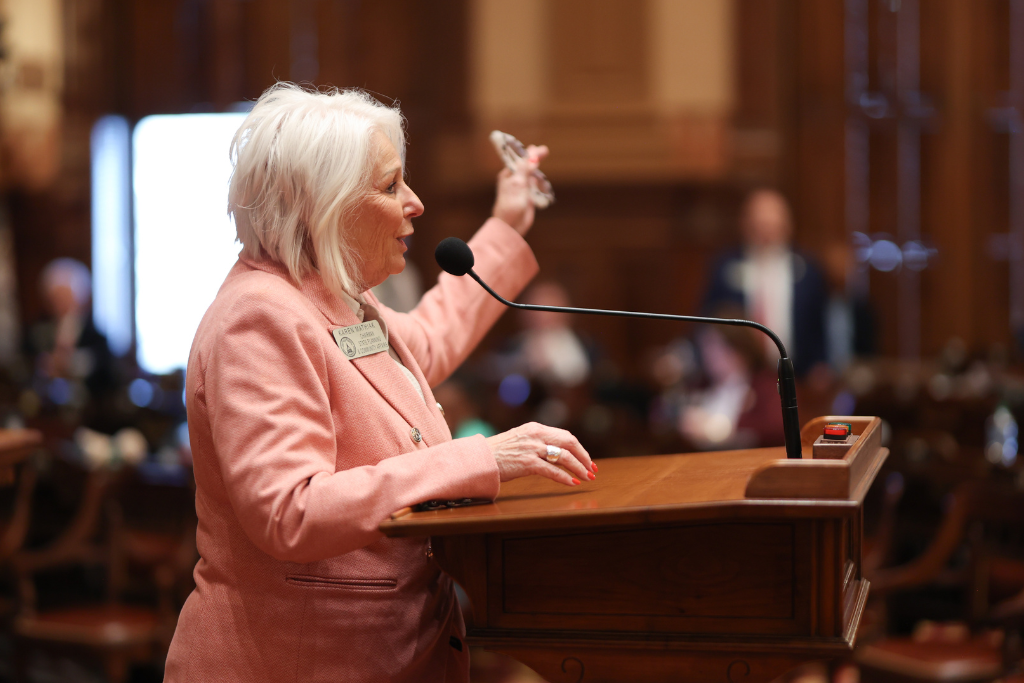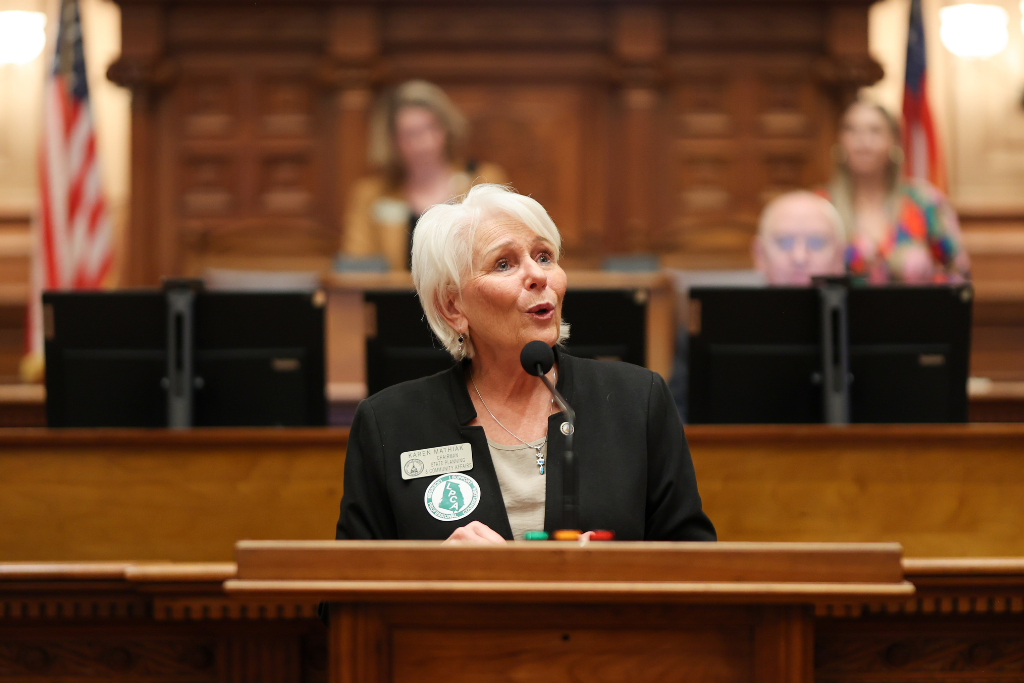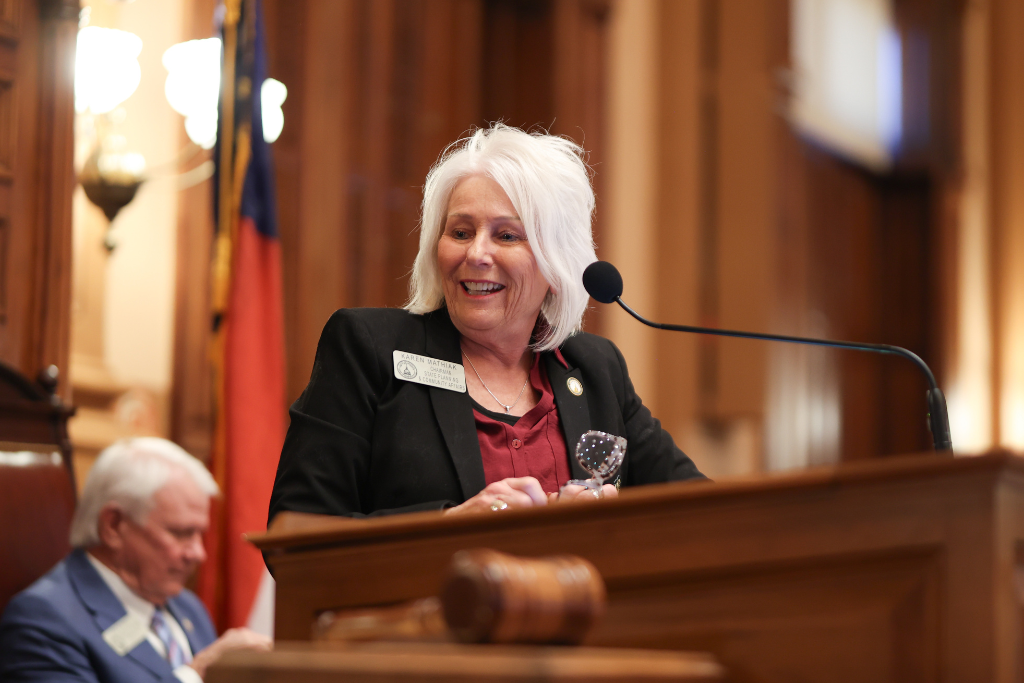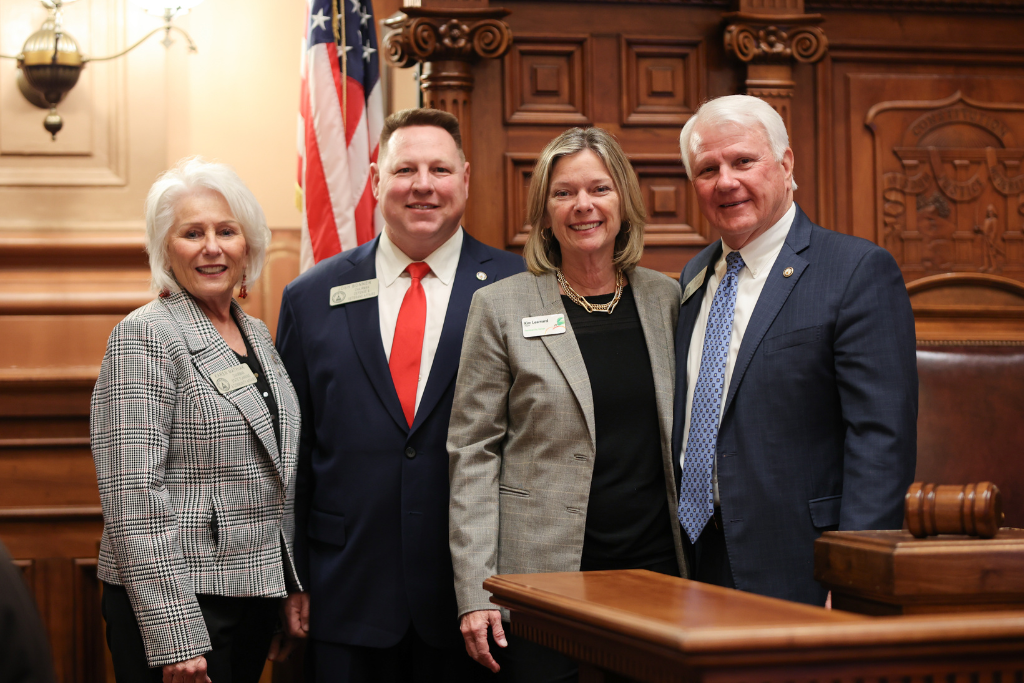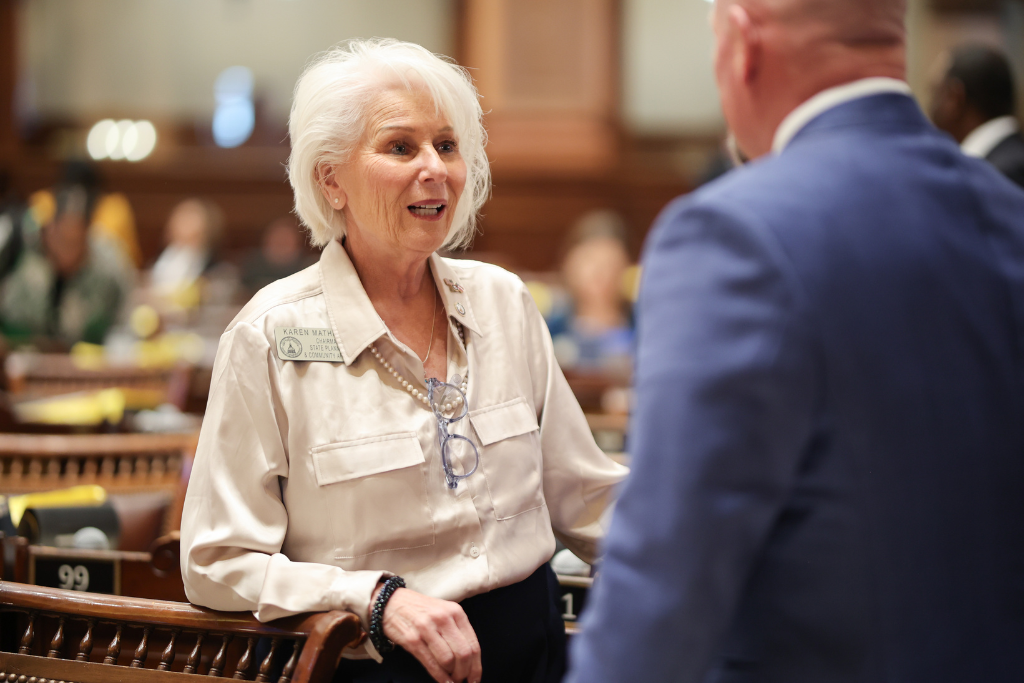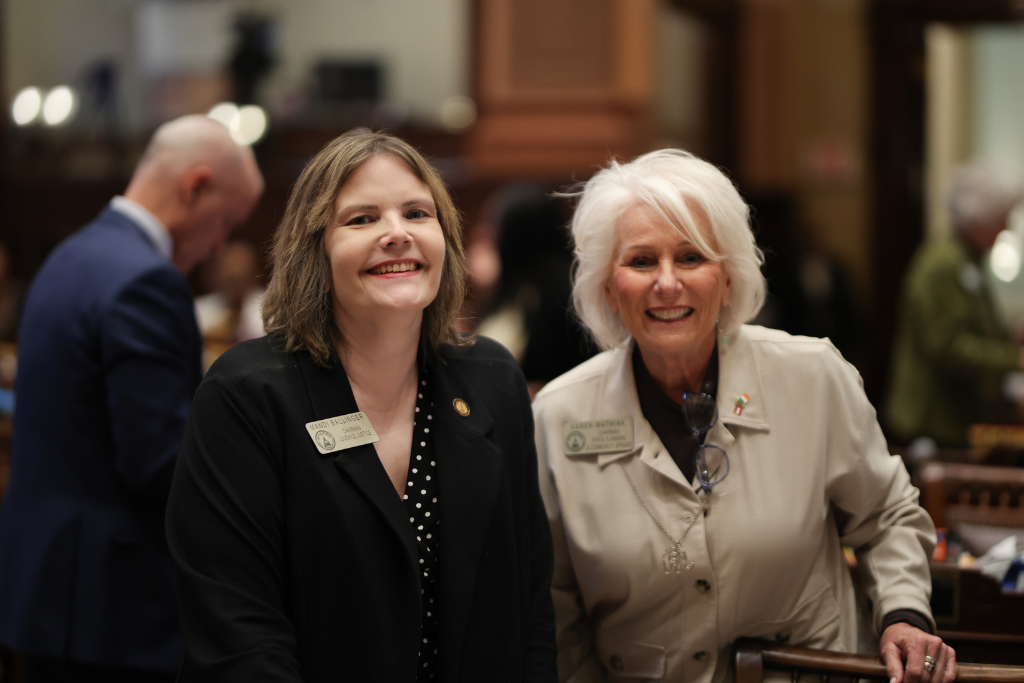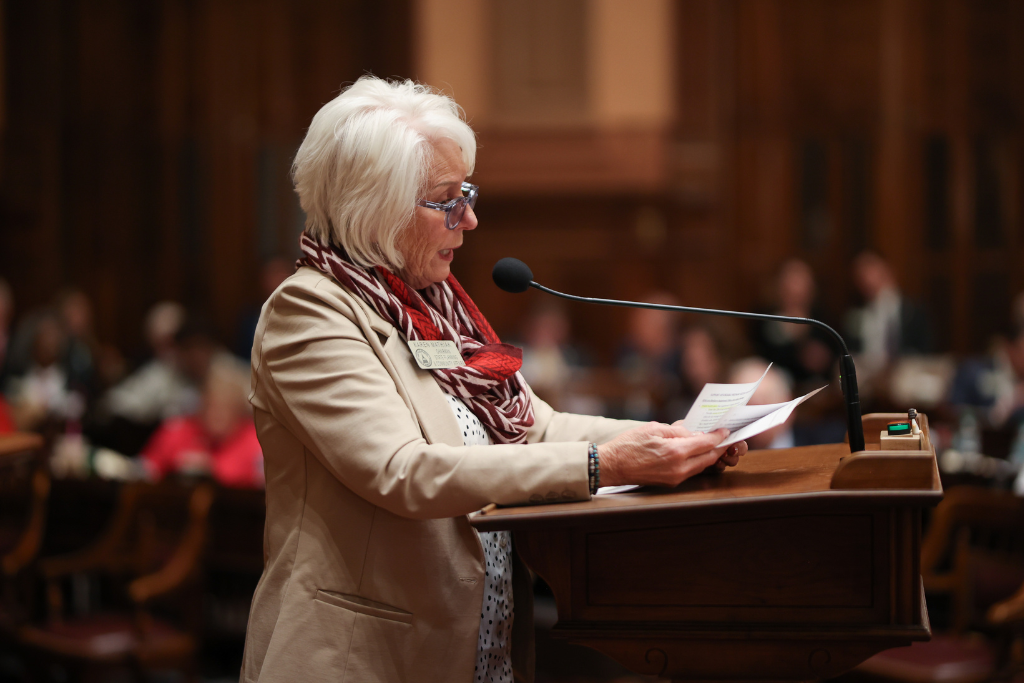Week 10 Legislative Session Recap 2023
March 13th - March 17th, 2023

The Georgia General Assembly reconvened for the 10th week of the 2023 legislative session on Monday, March 13. During these final days of session, my colleagues and I have turned our focus toward reviewing Senate legislation that passed before the Crossover Day deadline last week. As such, we were extremely busy considering Senate bills in our respective House committees, and we passed a number of these bills on the House floor this week.
On Tuesday, the House passed Senate Bill 3, or the “Reducing Barriers to State Employment Act of 2023,” to help attract more prospective state employees with different educational and professional backgrounds. SB 3 would require the Georgia Department of Administrative Services (DOAS) to regularly assess and reduce unnecessary educational, experiential and training requirements for positions within our state agencies and departments. While this bill does not entirely eliminate education requirements for state jobs, the DOAS would specifically work to reduce the number of job postings that require a four-year college degree as a condition of employment. The state and private sector are competing for top talent, and, through this bill, our state agencies could avoid creating artificial barriers that limit our ability to attract the best candidates, especially for positions in emerging fields that may not have existed a few years ago.
We also passed a bipartisan Senate measure to improve infant and maternal health outcomes in Georgia. Supported by the Georgia Department of Public Health, Senate Bill 46 would require prenatal syphilis and HIV testing to be administered by health care providers at multiple points throughout a pregnancy. The state already requires this testing to take place after a baby is born, but this bill would require medical providers to test for these two infections during a pregnant mother’s first appointment and again between 28-32 weeks of gestation. Pregnant mothers can pass syphilis to their unborn babies, which can cause serious complications for the baby if left untreated. Fortunately, testing for syphilis early in pregnancy can help identify the infection and allow for early treatment, which could significantly reduce the risk of transmission to the baby and prevent these serious complications. Similarly, HIV can also be transmitted from a pregnant mother to her unborn baby during pregnancy, labor, delivery or breastfeeding. However, if the mother is identified as HIV-positive during pregnancy, she can receive treatment to reduce the risk of transmission to the baby. While many health care providers already provide early syphilis and HIV testing, this bill would ensure that providers across the state give pregnant mothers this optional testing at earlier stages of their pregnancy to protect their own health and the health of their baby.
Additionally, the House passed legislation to protect vulnerable senior citizens in Georgia from falling victim to financial exploitation. Senate Bill 84 would require investment advisors or supervisory professionals to notify the Secretary of State’s Office if they suspect that an adult over 65 years old with mental or physical incapacitation, dementia or Alzheimer's disease is being exploited financially. The investment advisor could also inform one of the victim’s designated contacts about the situation if such person is not considered a suspect. To prevent individuals from taking advantage of these vulnerable citizens, the investment advisor could delay/deny suspicious disbursement requests. After stopping a suspicious payment, the advisor would have one week to investigate the request and report these findings to the state. This bill would also protect investment advisors from liability if they deny suspicious payments in good faith to safeguard their clients from financial exploitation. Unfortunately, the financial exploitation of vulnerable senior citizens is not uncommon, and HB 84 would help the state identify and stop perpetrators of this type of financial abuse.
I also want to share that the House passed bipartisan Senate legislation to ensure that Georgia children can set up lemonade stands in their neighborhoods without a permit. Senate Bill 55, also known as the Lemonade Stand Act, would allow children to sell non-consumable goods, pre-packaged food items and non-alcoholic beverages, such as lemonade, without requiring permits, licenses or incurring taxes as long as the annual revenue is less than $5,000. Lemonade stands are a cherished tradition for Georgia children, and this legislation would allow these young entrepreneurs to operate without the hassle of permits and taxes.
My colleagues and I also took time on the House floor to honor our friend and former colleague, the late Speaker David Ralston (R-Blue Ridge), who passed away unexpectedly last November. On Tuesday, March 14, Speaker Ralston’s family joined us on the House floor as we remembered the late speaker on what would have been his 69th birthday. Before his passing, Speaker Ralston was the longest-serving active speaker of a state house in the nation. He was also the second-longest serving speaker of the Georgia House of Representatives in state history. During his tenure, Speaker Ralston was a steadfast champion for job creation and economic development, especially for rural communities in Georgia. He also cared deeply about improving the health and wellbeing of Georgians and led the fight for historic reforms to address mental health care, maternal mortality and adoption reform. Even though he is no longer with us, his legacy will be felt throughout our state for generations to come.
In other news, Governor Brian Kemp signed House Bill 18, or the Amended Fiscal Year 2023 (AFY 2023) budget, this week. Set at a revenue estimate of $32.56 billion, this finalized amended budget includes many of the House’s priorities to support economic development projects, public safety initiatives, as well as recruitment and retention efforts for our public workforce. HB 18 immediately went into effect upon the governor’s signature and will direct our state spending through June 30, 2023. You can learn more about how state funding will be spent in the remainder of this fiscal year here.
This week, Gov. Kemp also signed into law two other House bills to support Georgia taxpayers. First, the governor signed House Bill 162 to provide a one-time income tax refund to Georgians who filed returns for both the 2021 and 2022 tax years. Similar to the tax refund last year, individual tax filers could receive a maximum refund of $250, head of household filers could receive a maximum refund of $375, and married individuals who file jointly could receive a maximum refund of $500. The Georgia Department of Revenue is expected to begin issuing these refunds this spring based on each filer’s tax liabilities. Gov. Kemp also signed House Bill 311 to give local governments an optional temporary tax relief mechanism for local property damaged by a natural disaster, such as a tornado or hurricane. An assessment of the damaged property would be required before being eligible for temporary tax relief, and local governments would not be required to implement this temporary tax relief. I will keep you updated on which bills the governor signs into law in the weeks and months ahead.
The House of Representatives also passed the following Senate bills this week:
- Senate Bill 21, which would expand the Georgia Veterans Service Foundation board of directors to include seven to 13 board members, and at least four members would be required to have served in the armed forces, National Guard or reserves; the bill would reduce the term of board members to three years, require the board to meet quarterly, as well as allow the Georgia Department of Veterans Services commissioner to appoint a chief executive officer;
- Senate Bill 23, which would revise various committee names and state authority titles and repeal several inactive authorities, committees, advisory councils, offices and commissions; the bill also specifies how these entities’ assets should be devolved following repeal; the bill would also remove certain language regarding pre-filing legislation in the Georgia General Assembly;
- Senate Bill 27, which would prohibit insurers from requiring ophthalmologists or optometrists to provide a discount on eye services that are not covered in order to receive increased payments, better reimbursements, preferential treatment or any other benefit;
- Senate Bill 116, which would limit municipal leases for the operation of an arena, sports field, stadium or other recreational facility to no longer than 20 years; these leases would not be subject to renewal but would be subject to bids or auctions after the initial lease expires;
- Senate Bill 120, which would update the Uniforms Carriers Act’s effective date to January 1, 2023, to comply with federal law;
- Senate Bill 128, which would allow the Peace Officers’ Annuity and Benefit fund to increase the maximum amount of assets invested in alternative investments from 10 percent to 15 percent; SB 128 has been certified as a non-fiscal retirement bill;
- Senate Bill 134, which seeks to streamline some of the procedures in the foster care system by updating evidence codes for juvenile proceedings; specifically, the bill would allow minors to provide unsworn testimony for cases regarding the termination of parental rights; this measure would also make it easier to present medical testimony by shortening the time frame that a medical narrative must be introduced;
- Senate Bill 140, which would prohibit Georgia’s medical providers from providing sex reassignment surgeries and hormone replacement therapies to minors under the age of 18 in a licensed institution for the treatment of gender dysphoria with certain exemptions; exceptions would include the treatment of sex development disorders, androgen insensitivity syndrome and some other medical conditions; minors who began hormone replacement therapies before July 1, 2023, would be exempt; licensed physicians in violation would be held administratively responsible by the medical board;
- Senate Bill 193, which would allow the Georgia Department of Community Affairs to determine locations that are eligible for state and federal broadband funding.
We completed our work for the week on Thursday, March 16, which marked Legislative Day 35. My colleagues and I will return for our last full week of session on Monday, March 20. As we continue to work with the Senate to ensure the final passage of meaningful legislation, I encourage you to contact me with any questions or concerns you might have about legislation before we adjourn on March 29. You can call my office at (404) 656-0213 or email me at karen.mathiak@house.ga.gov.
As always, thank you for allowing me to serve as your state representative.

